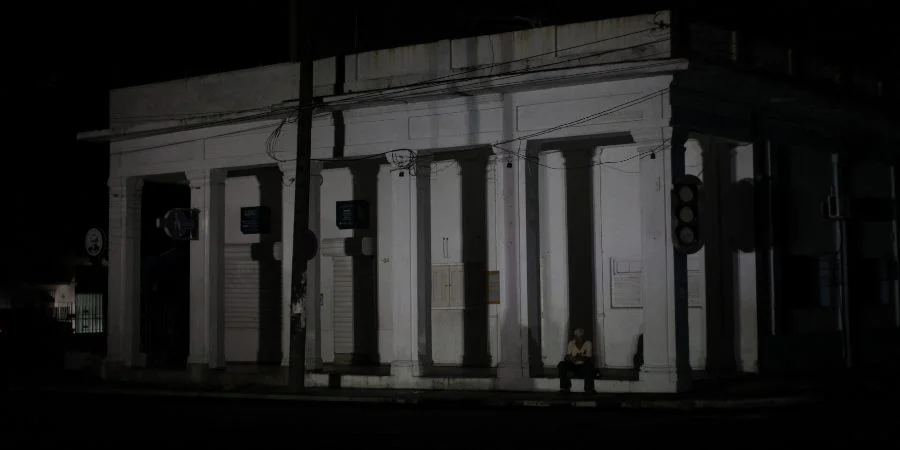HAVANA, Cuba. – This is not the first time that a massive interruption in energy generation has occurred in our country, although never of such magnitude as the one that occurred on October 18when a failure of the Antonio Guiteras Thermoelectric Power Plant caused the disconnection of the National Electroenergy System (SEN). The immediate consequence was a national blackout of more than 72 hours. However, let us not forget what happened in May 2004, when during general maintenance that same plant suffered another major breakdown that caused serious damage to the country, mainly in the western region.
That incident highlighted the urgent need to look for alternatives to replace, as much as possible, our already depleted thermoelectric plants. On that occasion Fidel Castro took the opportunity to present an ambitious project, which he baptized with the bombastic title of “Energy Revolution”. The plan – which if executed correctly would have effectively improved the country’s energy network – included, among other measures, replacing our old appliances with others with more modern technology and lower consumption, using electric generators and giving greater prominence to renewable sources. of energy.
Very soon the people who would carry out the project began to be recruited and trained: a floating crowd of young people disengaged from study and work, whom the “commander in chief” himself baptized with the arbitrary name of “social workers.” Their “little puppies,” in the words of some, whom official propaganda extolled as paradigms of honesty. However, day-to-day work proved the opposite.
In 2005, as part of preliminary actions, the Government distributed a 60-watt Chinese energy-saving bulb to some homes to replace fluorescent lamps. However, once the initial enthusiasm had passed, these accessories began to lose popularity, given that their use required a series of additional expenses in cables, sockets, etc. As an added disadvantage, those luminaires had a short lifespan.
In 2006, named by the Cuban communists “Year of the Energy Revolution”, the process of distributing the new appliances began. Something that, seen from the outside, could give the impression of benefiting us. Unfortunately this was not the case in practice. Firstly, the granting of the most attractive items, such as televisions and fans, as is customary under Castroism, was subject to the level of commitment shown by the beneficiary towards the regime. Added to this, of course, is that the teams in competition were not enough for all families.
Even so, some Cuban homes were “uniformed” with devices made in China which did not take long to demonstrate their poor quality. A rice cooker, a small electric stove with a modest set of utensils, an ephemeral thermos jug for boiling water, an electric pressure cooker (the famous Reina) and another for gas (to this day the only survivor of that adventure) were distributed throughout the ration bookalthough not in all the wineries in the country. Other equipment, mainly refrigerators and air conditioners, were changed – provided they were working – through the social workers. In that exchange, the commander’s new pets had a field day, specifically accepting bribes to pass off damaged equipment as healthy.
Regarding that unequal exchange, many Cubans did not understand why we had to deliver our refrigerators working and also pay for the new ones, obviously of inferior quality, a million dollars totally out of our pocket, which would leave us in debt for years. Those of us who were reluctant were visited by a persuasive commission, made up of members of the CDR and the PCC, in charge of making us “understand” that the value of the new equipment was much higher than ours, given that these would be destined for “scrap.” . And they pronounced the word in a derogatory tone, as if scrap metal were garbage and not a fundamental component in the main industry of any country: metallurgy.
And in combination with the pressure exerted by these cadres, Fidel Castro appeared in daily appearances on national television to “convince” the population of the “benefits” of this exchange, a repressive tactic used by him on many occasions. It is worth noting that it is not that we had any options left, since with the imposition of a minimum quota for liquefied gas, that of kerosene, the fuel used at the time in a large number of homes, would be eliminated. In other words: judging by the panorama that the dictator and his media painted for us, whoever did not buy that equipment was not going to have anything to cook with when they took away our quota of bright light.
Another supposed purpose of the Energy Revolution, the development of photovoltaic and wind farms, also remained propaganda, despite the fact that our archipelago has the ideal characteristics for the use of these renewable energy sources throughout the year. Today, almost two decades later, the rulers and decision-makers of the yard have not moved forward with the plan to migrate towards sustainable energy alternatives.
Regarding the collapse of the SEN, on October 19, Lázaro Guerra, director of Electricity of the Ministry of Energy and Mines (MINEM), stated before the media: “It was Guiteras, but it could have been someone else.” The message was clear: the same thing can happen again at any time. The official also referred to the cause of the disorder: the low availability of fuel. Therefore, the solution is not to patch obsolete thermoelectric plants. It is necessary to replace them, modernize them. But modernizing the country’s energy infrastructure would involve a million-dollar investment, something that the dictatorship is clearly not willing to execute.
Meanwhile, it has been a long time since we Cubans no longer believe in the excuse of the “blockade” as the cause of all the country’s misery. How is it possible, then, that the “blockade” does not prevent the execution of other million-dollar projects, such as the incessant construction of hotels without clients?

















